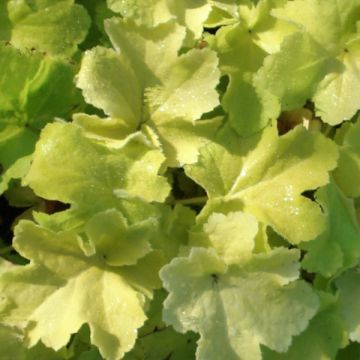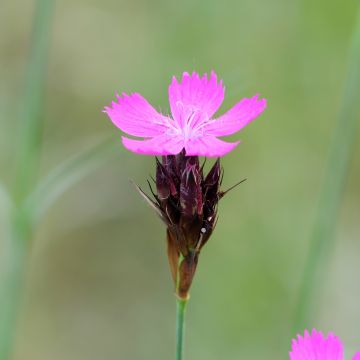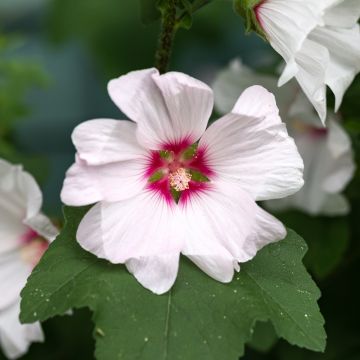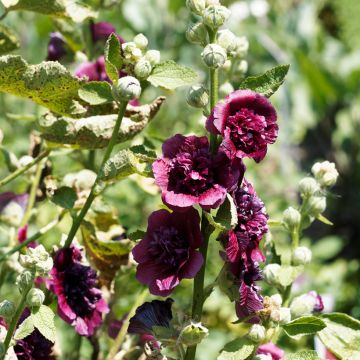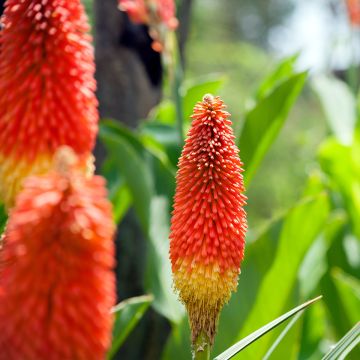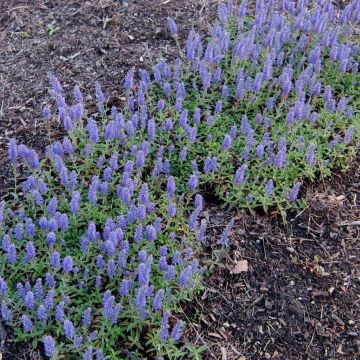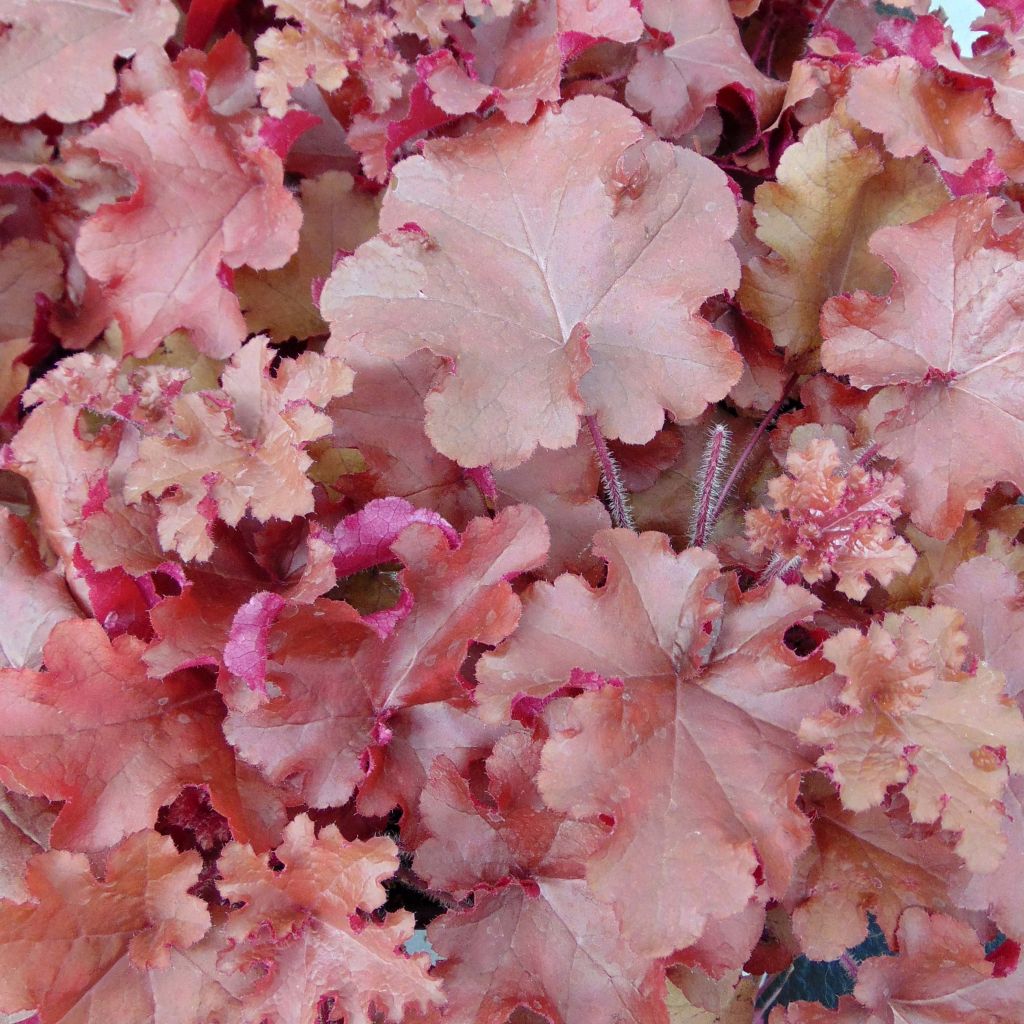

Heuchera micrantha Red Sea
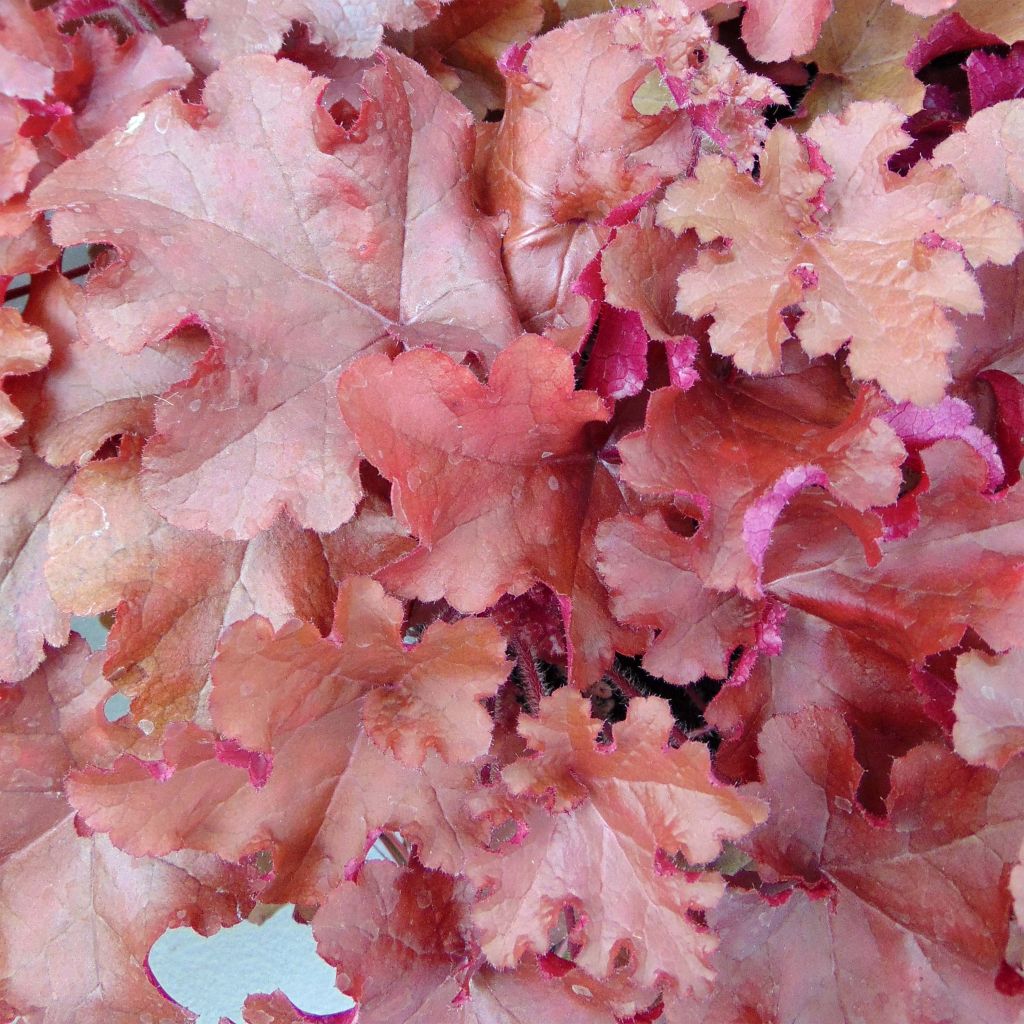

Heuchera micrantha Red Sea
Heuchera micrantha Red Sea
Heuchera x micrantha Red Sea®
Creeping Alumroot, Small-flowered Alumroot
This item cannot be shipped to the selected country
Delivery charge from €5.90
More information
Schedule delivery date,
and select date in basket
This plant carries a 12 months recovery warranty
More information
We guarantee the quality of our plants for a full growing cycle, and will replace at our expense any plant that fails to recover under normal climatic and planting conditions.
From €5.90 for pickup delivery and €6.90 for home delivery
Express home delivery from €8.90.

Does this plant fit my garden?
Set up your Plantfit profile →
Description
Heuchera 'Red Sea' is a very recent cultivar, with truly unique foliage. On its shiny and undulate leaves, a range of fantastic colours can be seen, from red-purple doubled with fuchsia pink to icy silver-red and softer coppery burnt rose towards the end of the season. This perennial forms a dense cushion with ever-changing shades. Delicate summer flowering, in the form of slender spikes adorned with cream-white buds, adds to the charm of this sensational variety. It is undemanding and robust, making it ideal for borders or flower beds, or even in flowering pots on the patio or balcony.
Heuchera 'Red Sea' belongs to the Saxifragaceae family. It is a horticultural hybrid obtained by Dirk Scheys in France. The plant will reach approximately 35 cm (14in) in height and 40 cm (16in) in width, forming a large spreading clump. The foliage is the main asset of this plant: the leaves are shiny on the upper side, and their rich hues, a mix of red, pink, copper, and bronze, evolve with the seasons and temperatures. In summer, the dominant colour is dark coppery pink. The underside of the foliage is a more or less purplish fuchsia pink. The flowering, light and airy, starts in June and continues until August. These long spikes of cream-white flowers, dancing in the wind, give a blurry aspect to this romantic flowering, which is difficult to capture on canvas. This plant has a shallow root system, making it sensitive to dry soil.
Planted in the ground, in a shaded and moist rockery or in a line to highlight a pathway, this heuchera will bring dynamism and a touch of fantastic colour to the garden. Combine it with hostas, small grasses (Stipa, Carex), and ferns for a wild effect. It will also be a good companion for shrubs (small Japanese maples, Japanese spireas, shrubby wormwoods) and roses. Pair it with the blue flowers of perennial geraniums or catmints. Consider heucheras to fill your pots, containers, and flower boxes along with geraniums, for example. A good cut flower, the slender bells of this plant bring a lot of lightness to bouquets.
Report an error about the product description
Heuchera micrantha Red Sea in pictures
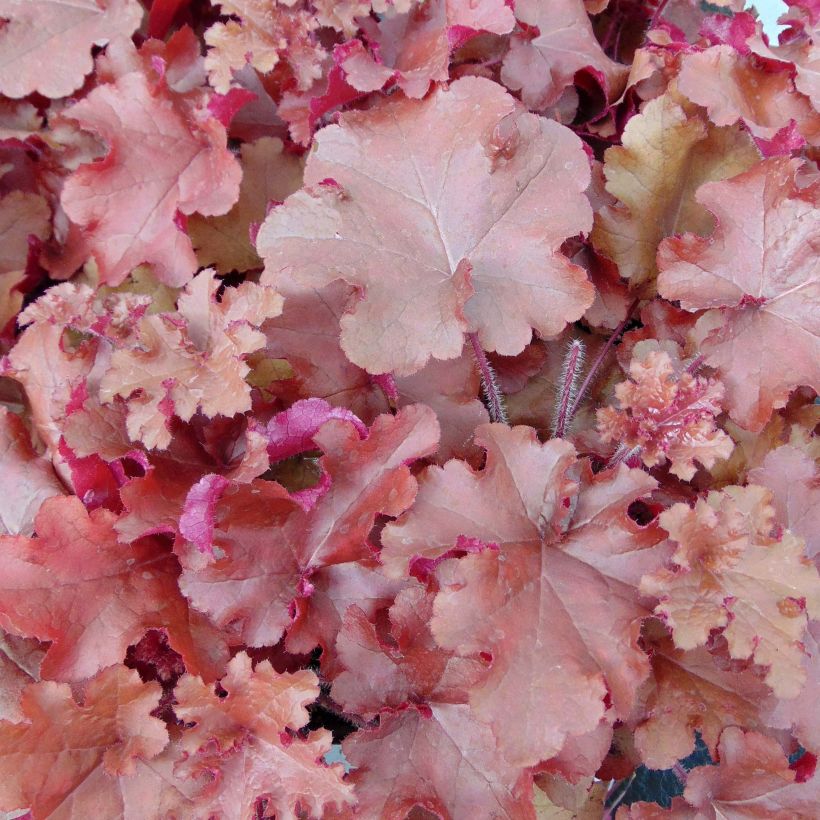

Flowering
Foliage
Plant habit
Botanical data
Heuchera
x micrantha
Red Sea®
Saxifragaceae
Creeping Alumroot, Small-flowered Alumroot
Cultivar or hybrid
Other Heuchera
Planting and care
Easy to maintain, Heuchera 'Red Sea' thrives in all well-drained, moist soils, in partial shade, and it should be protected from scorching sun and dry conditions. You should plant it in loose soil that is rich in humus, possibly providing mulch to keep the soil moist. It likes well-drained soil and rocks in and above the soil. However, it does not tolerate drought. Sandy and poor soils should be avoided. Also, avoid planting it near overly vigorous perennials. Heucheras have rather shallow root systems and should be planted a little lower than the crown (the point where the foliage originates). After a few years of growth or when dividing them, you should replant them slightly deeper, taking care to remove the lignified parts.
Planting period
Intended location
Care
-
, onOrder confirmed
Reply from on Promesse de fleurs
Summer flowering perennials
Haven't found what you were looking for?
Hardiness is the lowest winter temperature a plant can endure without suffering serious damage or even dying. However, hardiness is affected by location (a sheltered area, such as a patio), protection (winter cover) and soil type (hardiness is improved by well-drained soil).

Photo Sharing Terms & Conditions
In order to encourage gardeners to interact and share their experiences, Promesse de fleurs offers various media enabling content to be uploaded onto its Site - in particular via the ‘Photo sharing’ module.
The User agrees to refrain from:
- Posting any content that is illegal, prejudicial, insulting, racist, inciteful to hatred, revisionist, contrary to public decency, that infringes on privacy or on the privacy rights of third parties, in particular the publicity rights of persons and goods, intellectual property rights, or the right to privacy.
- Submitting content on behalf of a third party;
- Impersonate the identity of a third party and/or publish any personal information about a third party;
In general, the User undertakes to refrain from any unethical behaviour.
All Content (in particular text, comments, files, images, photos, videos, creative works, etc.), which may be subject to property or intellectual property rights, image or other private rights, shall remain the property of the User, subject to the limited rights granted by the terms of the licence granted by Promesse de fleurs as stated below. Users are at liberty to publish or not to publish such Content on the Site, notably via the ‘Photo Sharing’ facility, and accept that this Content shall be made public and freely accessible, notably on the Internet.
Users further acknowledge, undertake to have ,and guarantee that they hold all necessary rights and permissions to publish such material on the Site, in particular with regard to the legislation in force pertaining to any privacy, property, intellectual property, image, or contractual rights, or rights of any other nature. By publishing such Content on the Site, Users acknowledge accepting full liability as publishers of the Content within the meaning of the law, and grant Promesse de fleurs, free of charge, an inclusive, worldwide licence for the said Content for the entire duration of its publication, including all reproduction, representation, up/downloading, displaying, performing, transmission, and storage rights.
Users also grant permission for their name to be linked to the Content and accept that this link may not always be made available.
By engaging in posting material, Users consent to their Content becoming automatically accessible on the Internet, in particular on other sites and/or blogs and/or web pages of the Promesse de fleurs site, including in particular social pages and the Promesse de fleurs catalogue.
Users may secure the removal of entrusted content free of charge by issuing a simple request via our contact form.
The flowering period indicated on our website applies to countries and regions located in USDA zone 8 (France, the United Kingdom, Ireland, the Netherlands, etc.)
It will vary according to where you live:
- In zones 9 to 10 (Italy, Spain, Greece, etc.), flowering will occur about 2 to 4 weeks earlier.
- In zones 6 to 7 (Germany, Poland, Slovenia, and lower mountainous regions), flowering will be delayed by 2 to 3 weeks.
- In zone 5 (Central Europe, Scandinavia), blooming will be delayed by 3 to 5 weeks.
In temperate climates, pruning of spring-flowering shrubs (forsythia, spireas, etc.) should be done just after flowering.
Pruning of summer-flowering shrubs (Indian Lilac, Perovskia, etc.) can be done in winter or spring.
In cold regions as well as with frost-sensitive plants, avoid pruning too early when severe frosts may still occur.
The planting period indicated on our website applies to countries and regions located in USDA zone 8 (France, United Kingdom, Ireland, Netherlands).
It will vary according to where you live:
- In Mediterranean zones (Marseille, Madrid, Milan, etc.), autumn and winter are the best planting periods.
- In continental zones (Strasbourg, Munich, Vienna, etc.), delay planting by 2 to 3 weeks in spring and bring it forward by 2 to 4 weeks in autumn.
- In mountainous regions (the Alps, Pyrenees, Carpathians, etc.), it is best to plant in late spring (May-June) or late summer (August-September).
The harvesting period indicated on our website applies to countries and regions in USDA zone 8 (France, England, Ireland, the Netherlands).
In colder areas (Scandinavia, Poland, Austria...) fruit and vegetable harvests are likely to be delayed by 3-4 weeks.
In warmer areas (Italy, Spain, Greece, etc.), harvesting will probably take place earlier, depending on weather conditions.
The sowing periods indicated on our website apply to countries and regions within USDA Zone 8 (France, UK, Ireland, Netherlands).
In colder areas (Scandinavia, Poland, Austria...), delay any outdoor sowing by 3-4 weeks, or sow under glass.
In warmer climes (Italy, Spain, Greece, etc.), bring outdoor sowing forward by a few weeks.





































